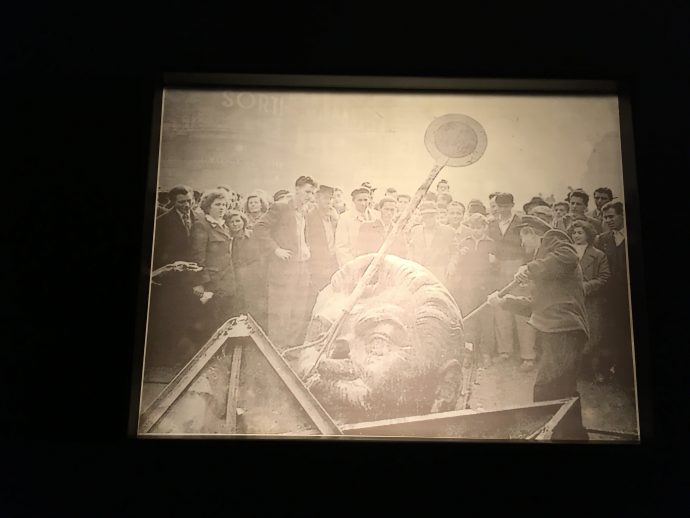Conservatives fail — but so do Libertarians! — to educate enough Americans about this “collectivist coin.” Here is Daniel J. Mitchell writing at the Foundation for Economic Education:
Big government is coercive government, regardless of what label is applied.
n 2016, I toured the Tuol Sleng Genocide Museum in Cambodia, which memorializes the victims of communist butchery in that nation.
Earlier today, I was lucky enough to get a tour through the House of Terror, a museum in Budapest that commemorates the horrors that Hungary endured during both Nazi occupation and Soviet occupation.
House of Terror
Some of the exhibits are uplifting, such as the photo from the 1956 uprising that shows a toppled statue of Stalin.
Other parts are downright depressing.
Or, in the case of these torture instruments, certain exhibits are utterly horrifying (you can use your imagination to figure out what the communists did with the glass tubes).
If you go to Hungary, the House of Terror should be on your list of things to do.
I was particularly gratified to learn that it’s the most-visited museum in Budapest. Not simply because it’s filled with interesting material, but because it helps people understand that all forms of statism are wrong.
The House of Terror has exhibits on the brutality of Nazi rule and the brutality of Marxist rule.
Which is a good excuse for me to share excerpts from a couple of columns on the common thread between fascism and socialism.
All Forms of Statism Are Wrong
In a column last November for the Foundation for Economic Education, Brittany Hunter shared some of Friedrich Hayek’s analysis of the philosophical link between national socialism and international socialism.
F.A. Hayek’s The Road to Serfdom, …in chapter twelve, …Hayek highlights the very important connection between the socialist and Nazi intellectuals by profiling a handful of prominent German Marxist supporters… Hayek points out that contrary to what many think, Nazism did not simply appear out of thin air and infect the minds of docile German people. There were academic roots that, while grown in the soil of socialist thought, grew into a philosophy that praised German superiority, ultimate war, and the degradation of the individual.
Read more: FEE.org

